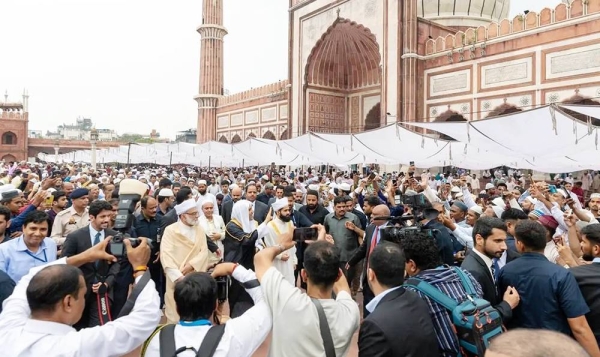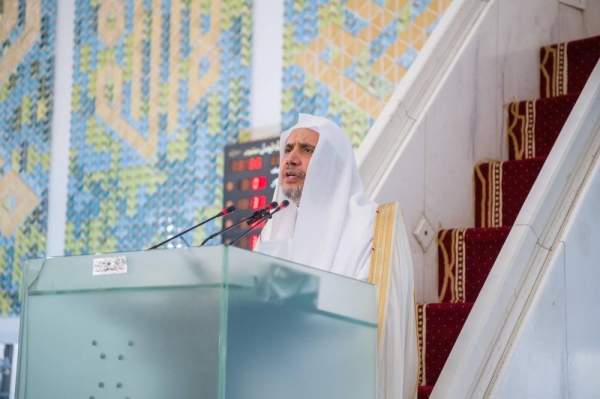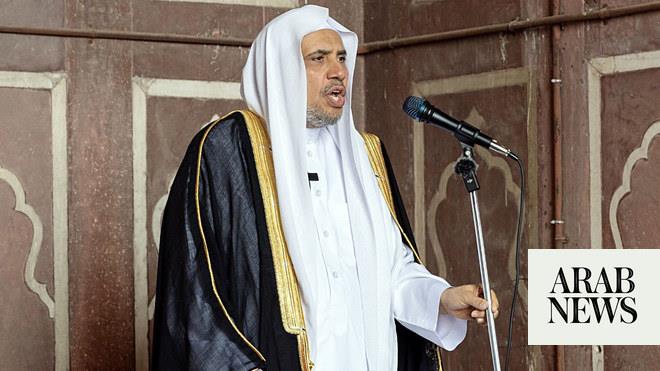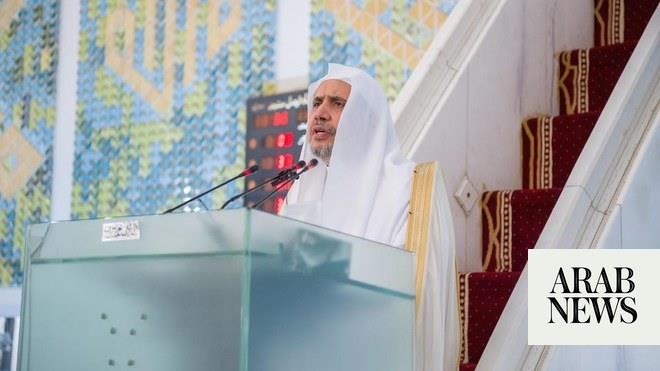
The Secretary General of the Muslim World League and Chairman of the Association of Muslim Scholars Sheikh Dr. Mohammad Bin Abdulkarim Al-Issa was honored to deliver the Friday sermon at the Jama Masjid (Great Mosque) in New Delhi, at the invitation of the mosque’s imam and preacher.
He was warmly welcomed by the Indian Islamic diverse categories to be the first religious figure from outside India to ascend the Great Mosque’s pulpit in nearly 400 years.
In the Friday discourse, he pointed out that the Holy Qur’an repeatedly urges people to “purify their souls.”
The Almighty Allah, Glory be to Him, says what means: “Successful indeed is the one who purifies his soul, and doomed is the one who corrupts it!” As for the Noble Sunnah, our Prophet (peace and blessings be upon him) was reported to say:
“A believer will attain by his good behavior the rank of one who prays during the night and observes fasting during the day.”
He also said: “Nothing will be heavier on the Day of Resurrection in the Scale of the believer than good manners. Allah hates one who utters foul or coarse language.” It is worth mentioning that the Prophet’s (pbuh) behavior reflected his greatest morals and manners.
He emphasized that the Islamic civilization is an ethical civilization that introduced to humanity wonderful models of human integration, honesty, trustworthiness, fulfilment of covenants and promises, forbearance, forgiveness and grace, cheerfulness of face and good speech.
Hence, the Muslim, equipped with high morals and comprehensive, conscious and wise view, is an example of optimal coexistence with everyone.
Dr. Al-Issa stressed that the texts of Islamic law have great objectives meant to achieve people’s religious and worldly interests. Such objectives look from all angles and not from one limited angle to fully see the picture; therefore, what is suitable for one country may not be suitable for another.
Islamic jurists have made it clear that Fatwas (legal opinions) and rulings may differ according to time, place and circumstances.
He added: “Hence also emerged the Makkah Charter, which was signed by the muftis and scholars of the Islamic nation and approved by Islamic countries, prohibiting the issuance of fatwas outside their spatial circumstance, conditions and private customs.”
He stressed that “A true Muslim’s life should be a reflection of high morals and values that confirm the majesty and beauty of Islam. Having those values serves the image of Islam, not to mention that the very being Muslims should always adhere to good morals.
“On the contrary, any shameful act testifies, with regret, against our religion in the view of those who do not know the true image of Islam. They may judge Islam through the acts of those belonging to it, whose misdeeds avert people from the Way of Allah.”
In the same context, he emphasized that the real believer highlights the truth of his religion through his lofty values and venerable deeds, in terms of the moderation and mildness of Islam, and through the rejection of all forms of extremism and violence, whatever the causes and pretexts.
Following the discourse, Dr. Al-Issa led the masses of worshipers in the presence of Indian senior scholars and sheikhs, and with thousands of worshipers filling the outer courtyards of the mosque. — SPA












